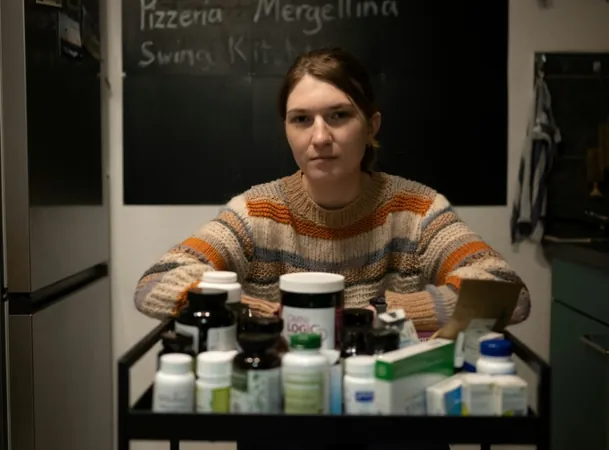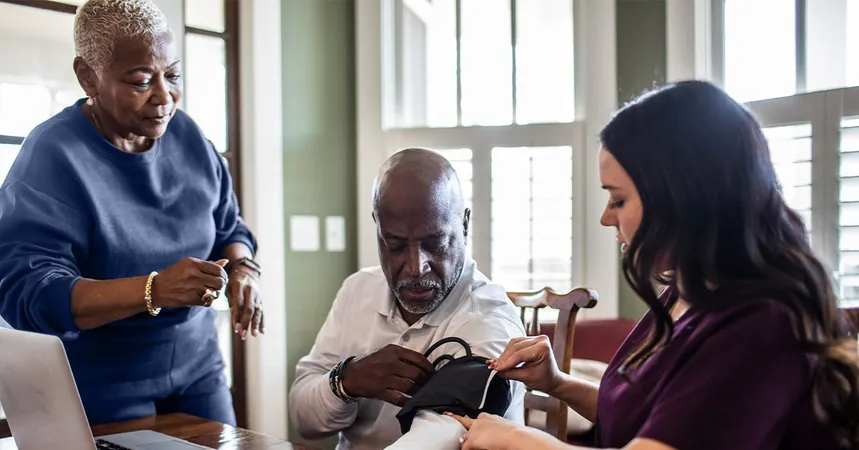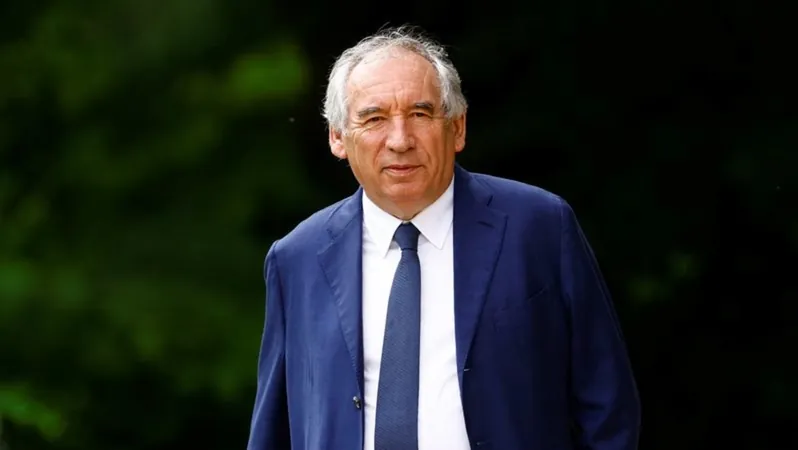
Five Years Post-Pandemic: The Silent Struggle of Long Covid Patients
2024-12-16
Author: Wei Ling
The Ongoing Battle of Long Covid Patients
As we reflect on the global upheaval caused by the Covid-19 pandemic, it's critical to acknowledge the continuing plight of long Covid sufferers. One notable example is Andrea Vanek, a 33-year-old aspiring arts and crafts teacher from Vienna, who found her dreams put on indefinite hold. What was once an ordinary life has turned into a daily battle against dizziness and heart palpitations that prevent her from even taking short walks.
Daily Struggles and Isolation
Three years after her diagnosis with long Covid, Andrea spends most of her days in her third-floor apartment, limited to observing the bustling world from her windowsill. Her current state has left her feeling imprisoned by uncertainty: “I can't plan anything because I just don't know how long this illness will last,” she shared, a sentiment echoed by many who have fallen victim to the lingering effects of the virus.
A Global Concern
Since the first Covid-19 cases were recorded in Wuhan, China, in December 2019, the World Health Organization (WHO) has tracked over 777 million infections globally. Among these, long Covid has emerged as a significant concern for millions, who face ongoing issues such as fatigue, cognitive difficulties, and respiratory challenges long after their initial infection.
Risk and Symptoms
Anita Jain from WHO's Health Emergencies Programme confirms that about 6% of those infected are likely to develop long Covid. While the initial rates of long Covid have seen a decline, the risk of reinfection poses alarming new challenges. Ceaseless symptoms rob individuals of their quality of life, as those like Andrea are faced with debilitating "crashes" marked by severe muscle weakness that can last for months—rendering simple tasks, such as opening a water bottle, painfully difficult.
Personal Testimonies
Chantal Britt, a 56-year-old resident of Bern, Switzerland, similarly recounts how long Covid has dramatically altered her once active lifestyle. An avid marathon runner before her Covid infection in March 2020, Chantal now spends her mornings in a painful struggle to rise from bed, stating, “I take at least two hours to get up because everything hurts.” The active, motivated woman has shifted to working part-time as a university researcher on long Covid after losing her previous communications job when she asked for a reduction in hours.
The Invisible Disease
Both Andrea and Chantal highlight the often invisible nature of long Covid, which compounds the stigma surrounding it. “It's an invisible disease,” Chantal remarks. “Even severely affected individuals don’t appear sick.” This lack of visibility contributes to misunderstanding from their peers, as society grapples with a condition that is still largely misunderstood.
Complexity and Support Needs
The WHO acknowledges the complexity of long Covid, which encompasses over 200 identified symptoms alongside common ailments like fatigue and brain fog. Helping healthcare providers accurately diagnose and treat long Covid is imperative, yet many patients struggle to receive the proper support they need.
Financial Strain
Financial challenges further complicate the lives of those affected. Andrea, for example, receives less than 800 euros ($840) monthly in support, which falls short of covering her medical expenses, leaving her in a precarious financial position. “It's very difficult for students who get long Covid. We fall right through the cracks of the social system,” she emphasizes, underlining the urgent need for comprehensive support systems.
The Call for Research and Support
Chantal echoes this call for focused research, cautioning, “We need to understand long Covid better because the threat of future pandemics looms.” Her concerns resonate as many advocate for better recognition and treatment of post-infectious conditions like long Covid.
Advocating for Long Covid Patients
As we reflect five years post-pandemic, it’s crucial to engage in dialogue about the realities faced by long Covid patients. Their stories compel us to foster understanding, bolster research efforts, and advocate for systemic changes that provide the necessary support for those whose lives have been irrevocably altered.



 Brasil (PT)
Brasil (PT)
 Canada (EN)
Canada (EN)
 Chile (ES)
Chile (ES)
 España (ES)
España (ES)
 France (FR)
France (FR)
 Hong Kong (EN)
Hong Kong (EN)
 Italia (IT)
Italia (IT)
 日本 (JA)
日本 (JA)
 Magyarország (HU)
Magyarország (HU)
 Norge (NO)
Norge (NO)
 Polska (PL)
Polska (PL)
 Schweiz (DE)
Schweiz (DE)
 Singapore (EN)
Singapore (EN)
 Sverige (SV)
Sverige (SV)
 Suomi (FI)
Suomi (FI)
 Türkiye (TR)
Türkiye (TR)